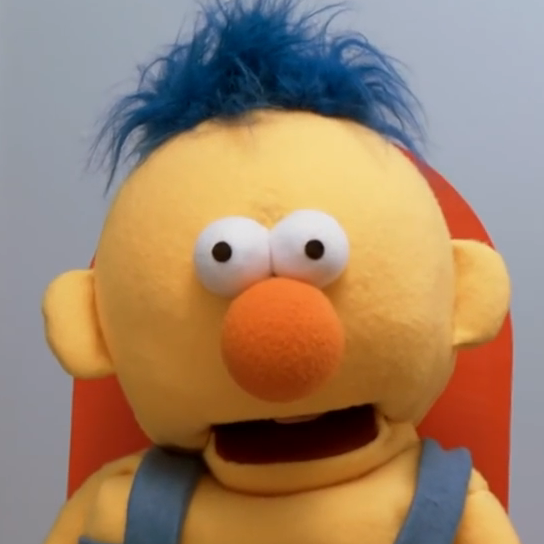When I was a kid I loved Heinlein, Asimov, Piers Anthony, Howard, Lovecraft, among dozens of other then popular scifi and fantasy authors
Heinlein is some weirdo libertarian fascist
Asimov hates women and was a notorious sex creep
Zanthony is a pedophile and his books are full of creepy shit
Howard was staggeringly racist
Lovecraft is also famously racist.
And that’s just the ones off the top of my head.
At some point I learned that all these guys were creeps, came to terms with it, and moved on with my life. Like an adult.
So all these people whining that “oh no I can’t let go of my childhood!!!” fill me with contempt. Many of the great shit-head scifi/fantasy writers of the 20th century made great contributions to the field of fantasy and sci fi. Our conception of robots wouldn’t be the same without Asimov. Heinlein changed military sci-fi forever. Howard’s Conan had a lasting impact on fantasy fiction far beyond what was merited by his mediocre writing. Lovecraft introduced the notion of Cosmic Horror that continues to push back the borders of science fiction today.
Rowling can claim none of that. Her wizard books are extremely mediocre with poor plots, flat characters, and no new ideas. Their popularity is the result of a then unprecedented marketing campaign, not any particular artistic merit. They’re entirely pedestrian and forgettable and there’s no reason to read them except as a historical curiosity or a case study in successful marketing of children’s literature.
I gave up many genuinely influential and talented writers when I realized that they were jackasses. There was nothing riding on it. No one is using Lovecraft to justify violence against Inuit people or something. I just found out they were jerks and said “Well shit. Guess I won’t recommend these to kids anymore”.
And all these jackasses have the audacity to say that we should respect their love of the mid wizard book beause it’s so important to them?
Maybe we should be writing the next generation’s defining novels
It’s an uphill obstacle course for your work to even be seen let alone tried by any significant number of people unless you’re already rich and connected. :doomer:
The best thing about problematic dead writers is that theyre dead and don’t benefit from you critically enjoying their work
Ok Harry Potter fans, here’s how you can enjoy you’re new game…
HG Wells and Arthur C Clark gang here. Just dunking all day long on Heinlein stans. Yeah, we’re cool.
:comfy-cool:
It was pretty neat reading “The Time Machine” last year and then going “oh, that’s where every time travel media got their basic tropes and imagery from.”
Lovecraft is definitely problematic, but he repudiated his former views and became a Socialist towards the end of his life. Impressive, given he came from a background so reactionary his aunts thought the KKK were a bunch of overly progressive jacobin radicals.
You still have to decide if you want to forgive a life of racism or not, especially when it pervades his pre 1930 work, but that’s a different question I think. I think reading his work can be useful, because you can see his insular racism, the confusion and contradictions caused by his New York experiences, and then his friends and experiences helping him to resolve the contradictions in the end, to the point where his final works have subtle anti-racist and anti-fascist themes most notably in Shadow out of Time.
It would have been interesting if Lovecraft would have lived a bit longer. I would be curious to see his potential growth as an author and a human bean.
Lovecraft 1920s Twitter racist to 1920s breadtuber redemption arc storyline
I still recommend some of Lovecraft’s work, and Asimov’s, and other shitty people’s. But always with warnings, with the intent to discuss their flaws and the way those flaws creep into their work (or, sometimes, take over the work wholly) and the way that those works can still be valuable and cool and worth looking at despite those flaws in author and work.
The problem with Harry Potter is it doesn’t really have any redeeming qualities. It is, as you say, worth nothing more than good marketing. I wouldn’t recommend them to anyone mostly just because they’re not very good, even with Rowling completely out of consideration.
If they were good? I don’t know, it’d be a different story.
With Lovecraft particularly, i’d argue that at least for me, his works were worth reading because they are so infected with his perverse ideas that it just derails and jumps from disgustingly racist into plain ridiculous. I mean, come on, the guy is literally afraid of trees and soap bubbles and star constellations. He lives in a constant state of dread and disgust, and that’s what all reactionaries are like deep inside. Lovecraft lays bare the soft, vulnerable underbelly of the reaction. Cosmic horror is the inability to handle the world as it is, without mythological, purpose-simulating blinders on your eyes, the utter failure to see the beauty in life’s sprawling chaos, the common L of the Appolonian. Lovecraft shows us the reactionary mind at its most miserable, when these people cannot pretend to be the violent, muscular Herrenmenschen they dream themselves to be, but when we see them for what they actually are: terrified little men who have to roll for sanity loss when they see me walking down the street and can’t decrypt my gender.
I’m not saying this because i want to recommend the guy, i’d particularly advise anybody who’s been racialized against getting too deep into this shitshow. Being able to do a close reading of reactionary material without distress is always privilege, i know from personal experience how much of a difference it makes when all that hate and terror is aimed at people like yourself. I can’t even begin to describe the damage transphobic narratives in mainstream media did to me, and i’m dead certain that for a lot of black & brown comrades, the same applies to the demonization of racialized and indigenous communities in works like Lovecraft’s. But for the time being, this material is out there, it has shaped how our culture conceptualizes certain tropes, and when you know it already and can stomach to bring it up again, it’s absolutely worth reflecting on and understanding the thought process and especially the emotional state behind it, because it’s a good way of knowing your enemy.
I should also add that i never gained the same insight from JKR’s work as i did from HPL’s. Looking at her writing with the knowledge of its not-that-hidden-bigottries didn’t teach me anything new, i just saw into the mind of somebody who is incredibly plain and petty and has never had an original thought in their entire life.
Strong agree with that last bit. Lovecraft remains useful because he’s smart and insightful and creative in the way he conveys his bigotry and terror and prejudices on to the page. Rowling isn’t smart enough or reflective enough to do any of that. You can learn something from Lovecraft that can be applied to understanding how bigots think about the world, but Rowling never really had anything to say.
Rowling’s first book felt like a straight Roahl Dahl knock off (also, incidentally, highly problematic). Orphan boy escapes his shitty pedestrian life with magical powers and goes on an adventure in a fantasy land both that is both romantic and dangerous. That’s textbook Dahl.
I get why people like Rowling. I loved James and the Giant Peach, growing up. I didn’t care about Dahl’s politics then and I’d still probably read the story to my kids now.
The idea doesn’t have to be original. You don’t need to be the first person to ever think of a robot or a wizard in order to write a compelling story. Rowling’s marriage of the mundane and the fantastic - the suicidally depressing and ecstatically exhilarating - gives HP legs and draws readers on to the next books.
That’s good enough on its own merits to read the first few books (although I’d just stop at 4, because they drop off quick after that).
Similarly, I’m still going to read The Color From Outer Space and I, Robot without a pang of guilt. If I find out Brian Sanderson writes all his first editions in baby blood, I’m not going to stop enjoying Mistborn or the back end of Wheel of Time, either.
I don’t think Rowling is anything special. But if I did, I would simply pirate the video game.
Rowling’s marriage of the mundane and the fantastic - the suicidally depressing and ecstatically exhilarating - gives HP legs and draws readers on to the next books.
That is not how I remember Harry Potter, but it has been several decades. I always assumed people liked it so much because they hadn’t read anything else, and because the massive marketing push reached people who weren’t previously interested in fantasy.
I mean it depends on when are you looking at Harry Potter, because I originally remembered it being marketed not on the merits of its story, but practically as a quasi-pedagogical tool, finally a panacea to sooth the children who cannot click the book. You had to see it to believe it, kids reading books instead of playing Nintendos. And HP probably single-handedly opened the floodgates for YA literature, so there was probably some truth to it. Hell, probably the lord of the rings renaissance and movie adaptations owe something to HP’s success. And for what is worth, I do remember them being pageturners when I was like 12, all the way to the fifth book where Harry Potter became too whiny an adolescent for me to want to keep up. I dunno, marketing alone can get you so far.
I think people here like to undersell a cultural artifact so big that it’s only comparable to stuff like Pokemon. And they have no reason to, despite whatever qualities HP may have it remains, objectively, a book series meant for children. And their adult consumers remain perpetually arrested to their childhoods, and that’s pathetic enough.
I think it was more a cultural artifact of the book publishing industry marrying itself into the entertainment industry successfully and was the pilot for it and what followed (all the post apoc YA stuff, Twilight, etc) was an indication that it was a successful full market campaign. People forget how Harry Potter was fucking EVERYWHERE, news, tv special, radio shows (positive press and negative crazed christian press), and one aspect people forget was the internet via AOL which was owned by Time Warner (oh wow who owns the HP license again???). Just damn insidious and impressive.
It can always be worse :1984:
Orwell is probably the closest comparison I have to Rowling. It took me quite a while to realize how utterly full of shit he was. It’s still very funny to me that the dreary future-Stalinism he envisioned ended up just being the capitalist UK anyway,.
It’s still very funny to me that the dreary future-Stalinism he envisioned ended up just being the capitalist UK anyway,.
Well, as they say, write what you know.
He was never in the USSR to have any actual experience of Stalinism anyway, hell his actual personal experience of propaganda was producing it for British occupied India during the war.








